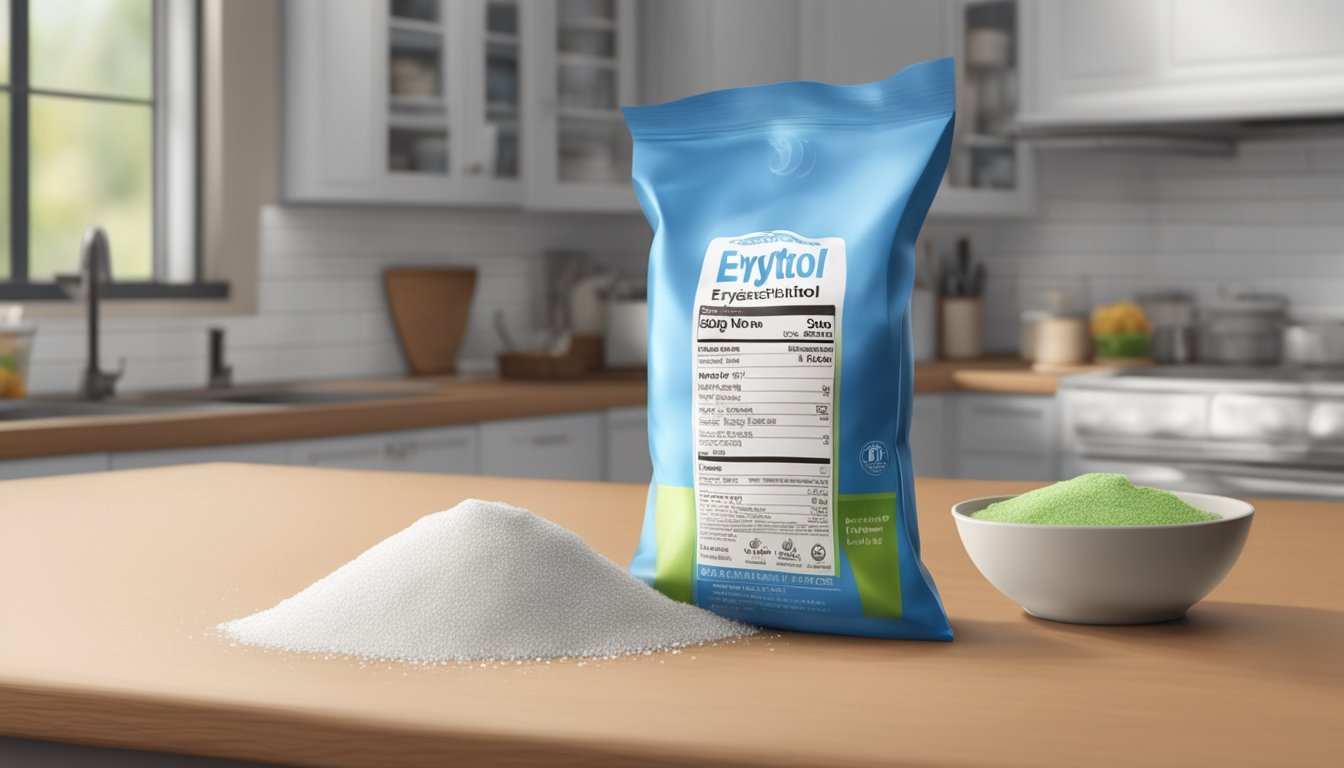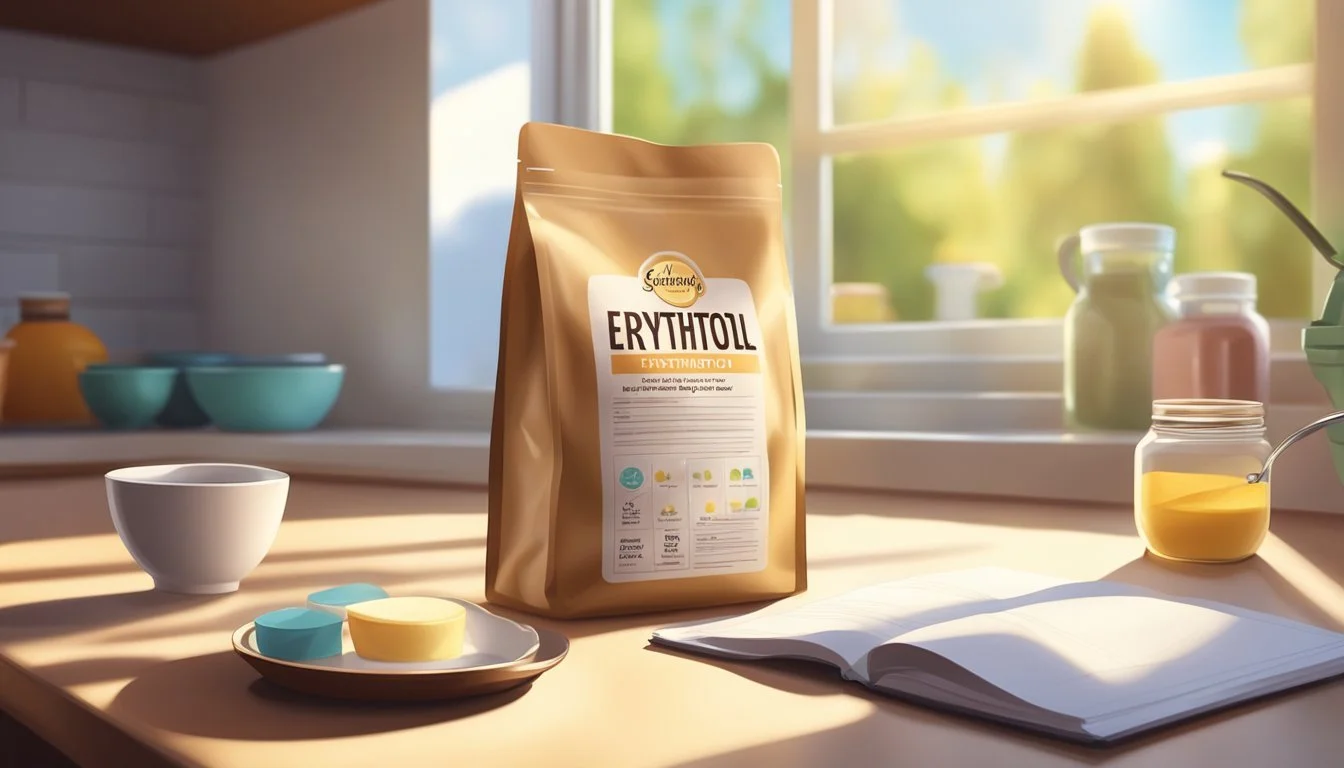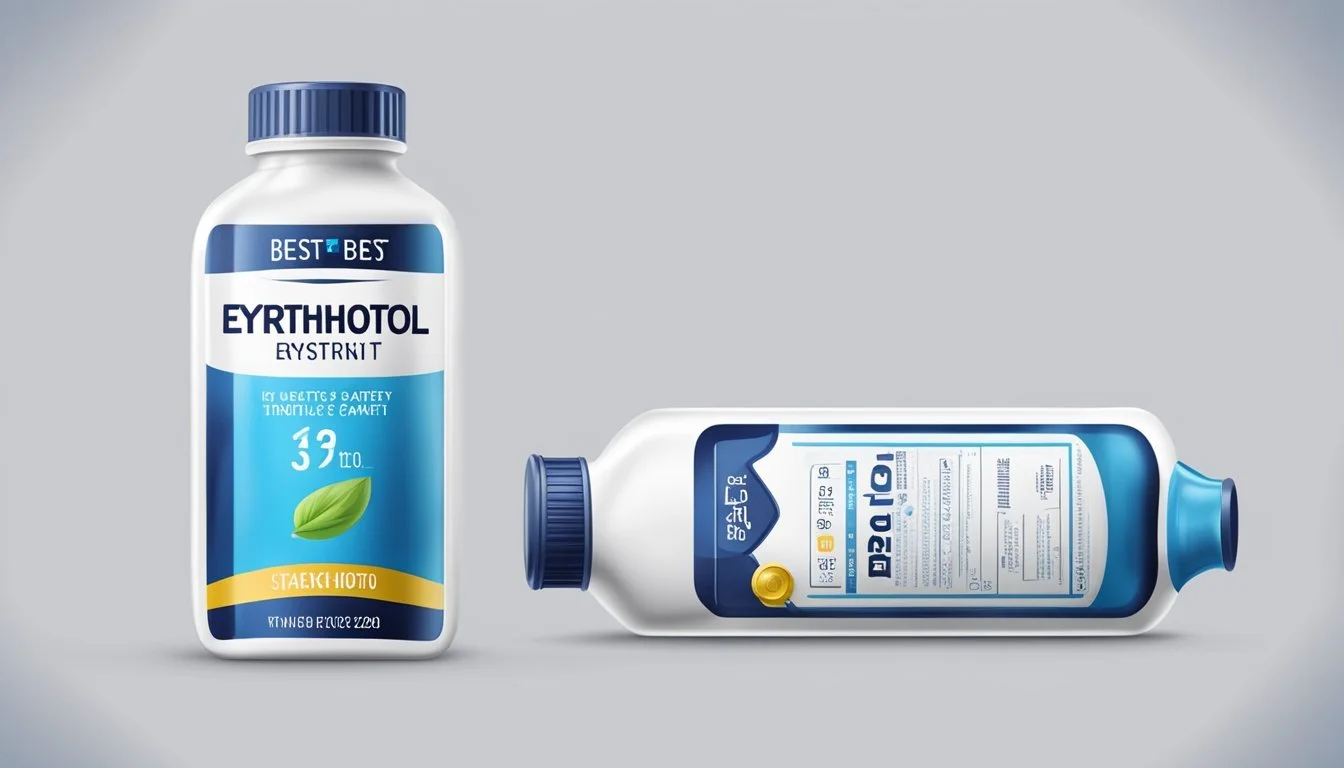How Long Does Erythritol Last?
Understanding Its Shelf Life and Storage Tips
Erythritol (how long does erythritol last?), a sugar alcohol, has become increasingly popular as a sugar substitute due to its low-calorie content and sweetening capabilities. As a member of the sugar alcohol family, erythritol shares characteristics with other alcohols like sorbitol and xylitol. These sugar alcohols are known for their sweet taste and are frequently used in a variety of foods, including gum, sugar-free desserts, and low-calorie snacks. Erythritol is unique in that it provides only about 6% of the calories found in the same amount of sugar, making it appealing for calorie-conscious consumers.
The stability of erythritol as a sugar substitute is a topic of interest for both consumers and manufacturers. Its longevity is influenced by its chemical properties, which allow it to be heat-stable and not easily broken down in the human digestive system. The fact that erythritol occurs naturally in some fruits and is produced by the fermentation of fructose indicates it is relatively resistant to spoiling, making it a durable ingredient in foods and beverages. This suggests that erythritol, when stored properly, maintains its sweetening properties over an extended period.
What Is Erythritol?
Erythritol is a sugar alcohol used as a low-calorie sweetener, which occurs naturally in small amounts in fruits and fermented foods. (What wine goes well with fermented foods?) Unlike traditional sugar, it provides sweetness without the associated increase in blood sugar levels.
Chemical Composition and Properties
Erythritol is classified as a four-carbon sugar alcohol or polyol. It is chemically synthesized through the fermentation of glucose, typically sourced from cornstarch. The molecular formula for erythritol is C_4H_10O_4, and it presents in the form of white crystalline granules or powder. Erythritol is characterized by its high digestive tolerance and does not significantly raise blood sugar or insulin levels, which makes it a popular sweetener in various dietary products.
Molecular Weight: 122.12 g/mol
Solubility: Soluble in water
Caloric Value: 0.24 calories per gram
Properties of Erythritol:
Non-glycemic
Nearly zero calories
High digestive tolerance
Sweetness: Approximately 70% as sweet as sucrose
Erythritol vs. Other Sugar Alcohols
Erythritol distinguishes itself from other sugar alcohols, like xylitol and sorbitol, on several fronts. It tends to cause less gastrointestinal distress due to its smaller molecular size and the manner in which it is absorbed by the body. Being absorbed into the bloodstream before it reaches the large intestine sets it apart from sugar alcohols that can cause bloating and digestive upset.
Comparison Table:
Sugar Alcohol Caloric Value (cal/g) Sweetness Relative to Sucrose Common Source Gastrointestinal Impact Erythritol 0.24 70-80% Corn Low Xylitol 2.4 Equal Birch or Corn Moderate Sorbitol 2.6 60% Fruits/Corn Moderate to High
While erythritol is naturally found in fruits and derived through fermentation, its large-scale production for use as a sweetener is a result of industrial processing. Its lower calorie count and minimal impact on blood sugar are key factors that contribute to its popularity as an alternative to conventional sugar.
Health Implications
When considering the health implications of erythritol, one must assess the potential benefits as well as understand the associated risks and side effects. Erythritol, a low-calorie sweetener, has gained attention for its implications on metabolic health, particularly in the context of diabetes and obesity.
Potential Benefits
Erythritol is a sugar alcohol with a very low calorie content, which can make it a helpful substitute for sugar for those seeking weight loss or managing obesity. It does not raise blood sugar levels, making it a safe alternative for individuals with diabetes, as it doesn't require insulin for metabolism. Its sweetness allows for the reduction in the consumption of higher-calorie sugars without sacrificing taste, potentially benefiting those with diabetes type 2 or metabolic syndrome by helping manage blood glucose levels.
Risks and Side Effects
Despite its benefits, erythritol may pose certain health risks:
Heart Health: Recent studies have suggested a link between erythritol and an increased risk of heart attack and stroke, though these findings underscore the need for further research to establish a definitive connection.
Digestive Issues: Like other sugar alcohols, erythritol can cause digestive issues in some individuals, particularly when consumed in large quantities. This can include symptoms like gas and diarrhea.
It's important for consumers to consider these aspects when incorporating erythritol into their diets.
Nutritional Information and Diabetes
Erythritol is a sugar substitute that has a significant impact on dietary management, particularly for individuals with diabetes, because it does not spike blood sugar or insulin levels.
Erythritol and Blood Sugar Levels
Erythritol is a sugar alcohol that is absorbed into the small intestine but is not metabolized by the body, leading to it being excreted largely unchanged in urine. Research has shown that the consumption of erythritol does not raise blood sugar levels, making it a safe alternative for those managing diabetes. This is critical information since maintaining stable blood glucose levels is essential for the prevention of long-term complications associated with diabetes.
Erythritol's Role in a Diabetic Diet
For those with diabetes, managing sugar intake is vital to avoid spikes in blood sugar that can lead to obesity and increase the risk of heart attacks and other severe conditions. Erythritol, as a sugar-free sweetener, fits well into a diabetic diet. It provides the sweet taste many desire without contributing to increased glucose levels. The use of erythritol by individuals with diabetes should still be done in moderation, as sensitivity to sugar alcohols varies among individuals.
Usage and Applications
Erythritol serves as both a food additive and sugar substitute, favored for its ability to sweeten without impacting dental health or blood sugar levels. Manufacturers often prefer it in powdered form for its ease of use and stability.
Erythritol in Food Products
Erythritol, as one of the sugar alcohols, is widely incorporated into food products as a low-calorie sweetener. It's routinely found in:
Sugar-free and no-sugar-added ice cream
Various cookies where it assists in sweetness while being tooth-friendly
Diet-friendly or low-calorie cakes and other baked goods
The application of erythritol extends beyond sweetening; it assists in texture and preservation of moisture, which is crucial in baked confections.
Culinary Uses
In culinary settings, chefs use erythritol for its versatility and similarity to sugar's taste and functionality. Key uses include:
Baking: Acts as a direct sugar substitute, beneficial for controlling caloric intake and managing blood sugar levels
Sweetening beverages: Provides a sugar-like taste without the calories or dental concerns
Erythritol's stability when exposed to heat makes it ideal for cooking, ensuring it can be used similarly to sugar in recipes.
Comparison With Other Sweeteners
When comparing erythritol's shelf life against other sweeteners, it's essential to distinguish between artificial and natural varieties, as their stability and longevity can vary.
Erythritol vs. Artificial Sweeteners
Artificial sweeteners, such as aspartame, sucralose, and saccharin, are synthesized compounds. They are known for their high sweetness levels, oftentimes surpassing sugar by hundreds of times. For instance, aspartame is about 200 times sweeter than traditional sugar, while sucralose achieves an intensity of sweetness around 600 times greater.
Shelf Life: Artificial sweeteners generally exhibit excellent shelf stability. Sucralose can maintain its sweetness for years without degradation, even when subjected to high temperatures during baking. Aspartame, while also shelf-stable, can lose some sweetness over time, especially when exposed to prolonged heat.
Comparison with Erythritol: Erythritol, unlike these artificial counterparts, is a sugar alcohol with a notable difference in sweetness level, being only about 70% as sweet as sugar. However, it compensates with a shelf life comparable to artificial sweeteners, remaining stable over long periods without significant changes in flavor or sweetness.
Erythritol vs. Natural Sweeteners
Among natural sweeteners, stevia, monk fruit, and other sugar alcohols like xylitol and sorbitol, are commonly used alternatives to sugar.
Stevia: It's a plant-derived sweetener that is non-caloric and much sweeter than sugar. Stevia's shelf life is relatively extensive, and like erythritol, it doesn't ferment or support microbial growth, enhancing its longevity.
Monk Fruit: Another natural sweetener, monk fruit extract, is also highly sweet and shelf-stable. Monk fruit and erythritol can persist for extended durations when stored properly, though monk fruit may be used in lesser quantities due to its intense sweetness.
Xylitol and Sorbitol: These sugar alcohols are not as sweet as sugar. They have good shelf lives but can be hygroscopic, meaning they attract moisture which can lead to clumping over time. Erythritol is unique in that it is less hygroscopic, hence more shelf-stable and resistant to clumping compared to these counterparts.
In terms of usage, brands like Truvia blend erythritol with stevia to offer a balanced sweetening option that combines the benefits of both sweeteners, including a favorable shelf life.
Shelf Life and Storage
In understanding erythritol's longevity, its shelf life and storage methods emerge as crucial factors. These determine the sweetener's stability and usability over time.
Proper Storage Conditions
To maximize the shelf life of erythritol, it should be stored under the right conditions. The sweetener thrives in a cool, dry environment, away from direct sunlight. A pantry or a cupboard away from heat sources is ideal. Erythritol, a sugar alcohol, is hygroscopic, meaning it can absorb moisture. Storage in an airtight container is therefore essential to prevent clumping and degradation.
Recommended storage conditions include:
Temperature: Room temperature (around 20°C or 68°F)
Humidity: Low humidity to prevent moisture absorption
Container: Airtight to maintain dryness
Signs of Degradation
While erythritol is known for its stability and long shelf life, it can degrade under less-than-ideal storage conditions. Signs that erythritol may no longer be at its best include:
Visual Changes: Clumping or changes in texture.
Taste Alteration: Any noticeable deviation from its originally mild, sweet taste could indicate spoilage.
Consumers should look for these indicators to assess the quality of erythritol before use. Regular checks are recommended, especially if the product has been stored for an extended period.
Regulatory Status and Safety
In assessing the regulatory status and safety of erythritol, it is critical to consider the guidelines and approval status provided by the Food and Drug Administration (FDA) as well as the sweetener's Generally Recognized as Safe (GRAS) status.
FDA Approval and Guidelines
The FDA has approved erythritol as a sugar substitute and classified it within the category of food additives that are GRAS. This status is accorded based on extensive scientific research and review of safety data. Food labels must identify erythritol specifically when it is included in a product's ingredient list.
General Recognition of Safety
Erythritol's GRAS status indicates that it is considered safe for consumption under the conditions of its intended use. This determination has been made by various erythritol suppliers through self-affirmed GRAS assessments. However, the National Law Review notes potential challenges to this status by litigants, suggesting the possibility of future scrutiny and assessment of erythritol's safety profile.
Environmental and Ethical Considerations
When discussing the longevity and impact of erythritol, it is imperative to consider both environmental sustainability and the ethical sourcing of its ingredients. The production process and sourcing of raw materials such as corn play a pivotal role in these considerations.
Sustainable Production
Erythritol is primarily produced from cornstarch, involving a fermentation process. The sustainability of erythritol production hinges on the following points:
Use of natural resources: The production relies on natural, renewable resources, predominantly corn, which must be cultivated in a way that minimizes environmental impact.
Energy consumption: The fermentation and purification process of erythritol should aim for maximum energy efficiency to reduce the carbon footprint.
Waste management: Byproducts and waste from erythritol manufacturing must be managed in a way that promotes recycling and reduces landfill use.
Ethical Sourcing of Ingredients
The ethical sourcing of ingredients like corn involves a commitment to the following principles:
Fair labor practices: Ensuring that all workers in the supply chain are treated fairly, with respect to working conditions and pay.
Community impact: The sourcing of corn should not negatively affect the local communities, rather aim to provide social and economic benefits.
Transparency: Companies must be transparent about their sourcing practices and strive to achieve traceability in the supply chain, fostering trust.
By adhering to these environmental and ethical benchmarks, manufacturers of erythritol can help ensure that their product remains a responsible choice for consumers looking for a sustainable sugar alternative.
Consumer Insights
This section explores the consumer patterns and preferences associated with erythritol, a sugar alcohol widely used as a sweetener in low-sugar and sugar-free diets.
Popularity Trends
Erythritol has seen an uptick in popularity, largely due to its presence in low-sugar and sugar-free products. Recognized for its low glycemic impact, it appeals to consumers managing their sugar intake, such as those with diabetes, as well as those following keto diets. The taste of erythritol is also a factor, as it closely mimics the sweet profile of sugar without the associated health risks, making it a preferred choice among sugar substitutes.
Consumer Preferences
When selecting sweeteners, consumers tend to prioritize both health and taste. Erythritol is often favored because it does not result in a bitter aftertaste, which is a common complaint with other sugar substitutes. The preference for erythritol also links to its dental benefits, as it is non-cariogenic, meaning it does not contribute to tooth decay. While some individuals choose erythritol for its potential diet benefits, including lower calorie intake, others might be cautious due to emerging research suggesting possible health risks. Nonetheless, erythritol remains a prominent choice for those seeking a balance between health considerations and flavor.
Conclusion
Erythritol is a natural sugar alcohol that is often used as a sugar substitute because of its sweetness, low-calorie content, and minimal impact on blood glucose levels. Regarded as generally healthy, especially in comparison to traditional sugars, erythritol's shelf life makes it a convenient alternative for long-term use.
Typically, erythritol is stable and can last for several years when stored properly in a cool, dry place away from moisture and heat. Its chemical structure provides it with a natural resistance to spoilage, and it does not support fermentation, which can extend its usable life compared to other sweeteners.
When considering erythritol for dietary purposes, individuals should be informed of recent studies suggesting a potential link between high blood levels of erythritol and increased cardiovascular risk. However, more research is needed to fully understand the long-term health implications of regular erythritol consumption.
In dietary contexts, erythritol can be a viable component of a healthy eating plan when used in moderation. It provides a sweet taste without the drawbacks commonly associated with refined sugars, making it an attractive option for those monitoring their caloric intake or blood sugar levels. Erythritol's shelf stability contributes further to its appeal in a variety of food and beverage applications.











